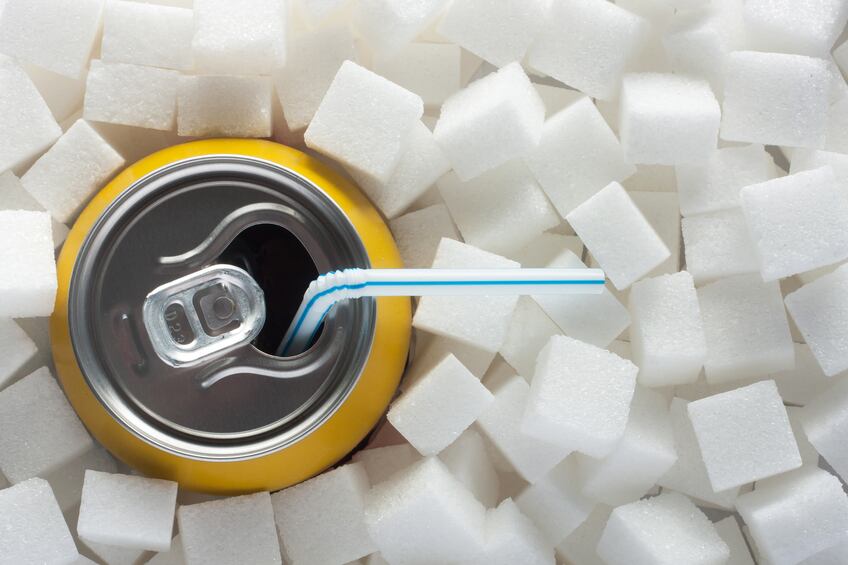Following a “constructive discussion” hosted by World Health Organization (WHO) Director General Dr. Tedros Adhanom Ghebreyesus earlier this month, IFBA’s member companies have agreed to build on their existing goal for the reduction of trans fats.
At the end of 2018, IFBA members met the target of their 2016 commitment to reduce iTFAs in their products to “nutritionally insignificant levels” of less than 1 gram of fat per 100 grams of finished product across 98.5% of their products worldwide. Now, an “enhanced worldwide commitment” will align their global standard with WHO’s recommendation for a maximum iTFA threshold in food products not exceeding 2 grams of iTFA per 100 grams of fat or oil by 2023.
This is a significantly more challenging standard, Rocco Renaldi, IFBA Secretary-General, explained because it is proportionate to the amount of fat in a product – not its finished weight. “Under the new standard, a product that contains 10g of fat will need to contain no more than 2% [iFTAs] of that 10g. It is a stricter threshold,” he told FoodNavigator.
The pledge comes a year after the WHO launched an initiative to provide guidance for all countries on how to remove artificial trans fats from their foods, with a view to eradicating the ingredient worldwide by 2023. According to the organisation, industrially-produced trans fats are associated with over 500,000 deaths from coronary heart disease globally each year.
IFBA Members:
- Nestlé
- PepsiCo
- Unilever
- Kellogg's
- Grupo Bimbo
- General Mills
- Ferrero
- Danone
- The CocaCola Co
- Mars Mondelez
- McDonald's
This is the first time McDonald's has signed up to IFBA's trans fat pledge.
European regulators have also taken action on trans fats and the goal is in-line with limits on trans fats set by the EU and due to come into effect in 2021.
“Working closely with the WHO under Dr Tedros’ leadership, the CEOs of IFBA have made a strong commitment on industrially produced trans fats. This is a demonstration of effective partnerships, leveraging the authority of WHO and the scale and commitment of the private sector for tangible public health outcomes,” Renaldi commented.
Looking beyond partially hydrogenated oils
Indeed, Renaldi said the standard is so challenging that companies will need to “look beyond” partially hydrogenated oils – in which a liquid unsaturated fat is turned into a solid fat by adding hydrogen. During this processing, which helps extend shelf live, trans fats are created.
But the new tougher maximum level will mean that eradicating partially hydrogenated oils alone from recipes may not be enough. Food and ingredients manufacturers will need to collaborate to ensure trans fats aren’t created in other types of oil by the refining process and are not present in other ingredients, such as processing aids. “Any commercially available oil will contain some traces of trans fats. These will usually be below 2% but it is not a given,” Renaldi explained.
Moreover, he continued, there is an “inverse correlation” between the fat content and the trans fat content of an oil. “The higher you are in polyunsaturated fats, which you want from a health perspective, the more change there is of getting trans fats in the refining process.”
Supporting an industry-wide shift: ‘This is pre-competitive’
IFBA believes that collaboration will be crucial for the target to be met. While it counts some of the largest global food and beverage manufacturers as members, the organisation wants to help facilitate change at an industry-wide level.
While partially hydrated oils have traditionally been favoured by food manufacturers for their low cost and longer shelf life, high levels of consumption have been associated with non-communicable diseases such as heart disease and stroke. It is also associated with a higher risk of developing type 2 diabetes.
“This is viewed as pre-competitive. When you have WHO and the EU saying ‘you need to phase [iFTAs] out, we don’t see it as a competitive issue,” the IFBA’s Secretary-General explained.
Currently, IFBA has two workstreams focused on lifting industry standards. The first, in collaboration with WHO, is providing a common forum for ingredients suppliers and industry and, as part of that, the organisation is looking at building an open access “knowledge depository”. The second workstream is a pilot project in Nigeria and Pakistan. Working alongside Resolve to Save Lives and the SUN Business Network, part of the Global Alliance for Improved Nutrition, IFBA is “bringing local industry to the table” and sharing knowledge with business, government and civil society.
2023: An achievable goal?
The scale of the challenge to eliminate trans fats from the global food supply – and the need to bring smaller manufacturers and less developed markets on the journey – makes 2023 a pretty tough target to hit.
“It is a big challenge if you look beyond the big companies and mature markets,” Renaldi conceded.
Echoing the approach taken by the WHO, he suggested that “several elements” need to work in unison. “There is the regulation element and there is also helping the industry adapt. These things go hand in hand."
“Is it going to be achieved by 2023? I don’t know. But there is good momentum.”
A ‘slippery slope’ for brands?
Responding to the pledge, GlobalData consumer insight analyst Kartina Diamonon said that it represented an “interesting president” for how other “food villains” will be tackled in processed foods.
GlobalData noted that other ingredients - such as salt, sugar and saturated fats – could find themselves in the firing line.
“It is far easier for brands to employ other health-promoting initiatives such as portion control, clear nutritional information and responsible marketing. However, enacting changes with regards to product ingredients and formulation is an entirely different undertaking. This trans fat pledge may represent a ‘slippery slope’ that brands will need to navigate if WHO continues to crack down on renowned food villains,” Diamonon suggested.




